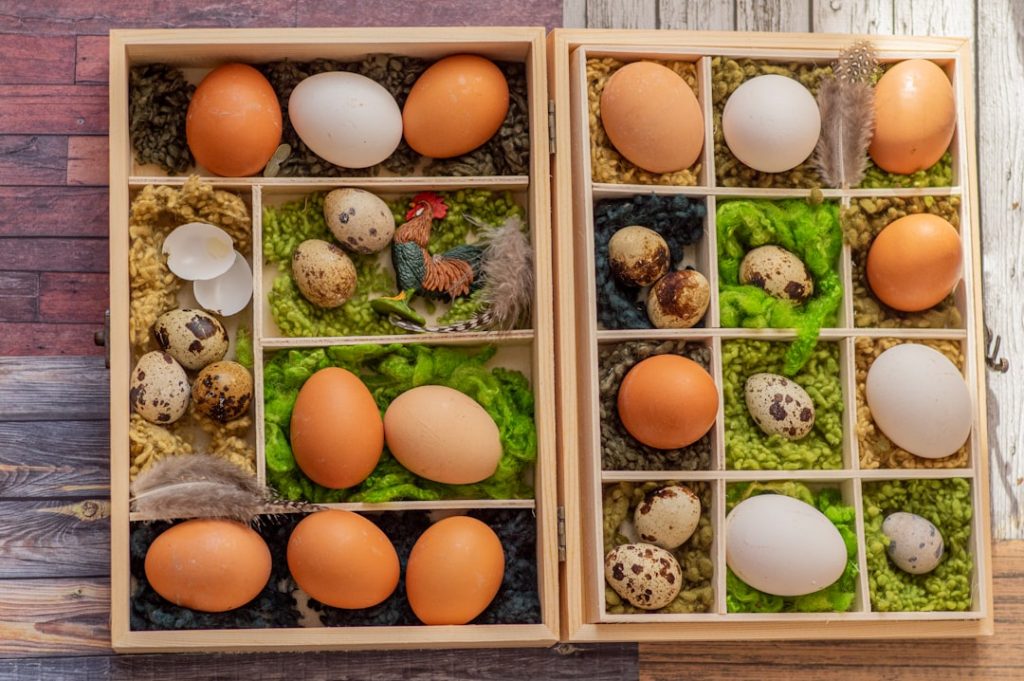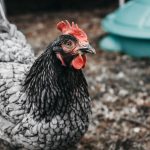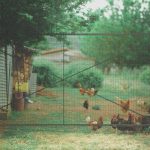Keeping chickens offers numerous benefits for households and individuals. These birds provide a reliable source of fresh eggs, which are typically more nutritious than store-bought alternatives, containing higher levels of omega-3 fatty acids and vitamin D. For those interested in meat production, raising broiler chickens can offer a sustainable source of poultry.
Chickens are natural foragers and excellent pest controllers, consuming various insects in yards and gardens. This behavior can reduce the need for chemical pesticides, making chicken-keeping an environmentally friendly pest management option. Additionally, chicken droppings serve as a high-quality fertilizer, enriching garden soil and promoting plant growth.
As pets, chickens can be engaging and entertaining. They exhibit distinct personalities and social behaviors, making them enjoyable to observe and interact with. Raising chickens can also be an educational experience for children, teaching them about responsibility and natural life cycles.
Overall, keeping chickens provides an opportunity to connect with nature, promote sustainable living practices, and enjoy multiple benefits ranging from food production to pest control and companionship.
Table of Contents
Key Takeaways
- Keeping chickens can provide a sustainable source of fresh eggs and natural pest control for your garden.
- When choosing the right breed of chicken, consider factors such as egg production, temperament, and climate adaptability.
- Housing and coop requirements for chickens include providing adequate space, ventilation, and protection from predators.
- Feeding chickens a balanced diet with access to fresh water and grit for digestion is essential for their health and egg production.
- Regular health check-ups, vaccinations, and parasite control are important aspects of veterinary care for chickens.
Choosing the Right Breed of Chicken
Egg Production Breeds
For those primarily interested in egg production, breeds such as the Rhode Island Red, Leghorn, or Australorp are renowned for their high egg-laying capabilities. These breeds are reliable layers and can provide a steady supply of eggs for your household.
Meat Production Breeds
If you’re interested in raising chickens for meat, then broiler breeds such as the Cornish Cross or Freedom Ranger are popular choices. These breeds are known for their fast growth and high meat yield, making them ideal for those looking to raise chickens for meat production.
Dual-Purpose Breeds and Environmental Considerations
Additionally, there are dual-purpose breeds that are suitable for both egg production and meat, such as the Plymouth Rock or Orpington. It’s also essential to consider the climate and environment in which you live when choosing a breed. Some breeds are more cold-hardy, while others are better suited for warmer climates. Furthermore, consider the temperament and behavior of the breed, as some may be more docile and friendly, while others may be more independent or flighty. By carefully considering these factors, you can choose a breed of chicken that best suits your needs and will thrive in your specific environment.
Housing and Coop Requirements
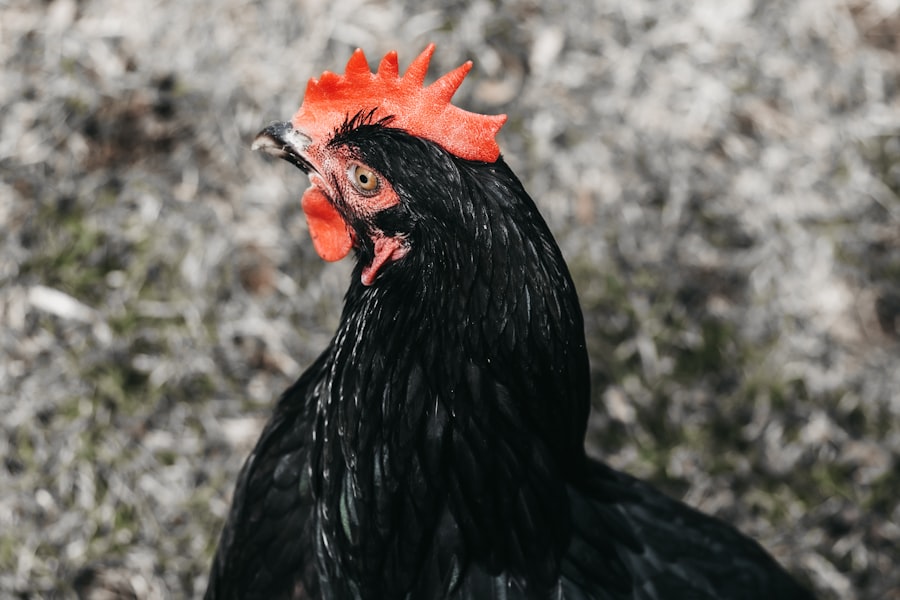
Proper housing and coop requirements are essential for keeping chickens healthy and safe. When it comes to housing, chickens require a secure and predator-proof coop that provides protection from the elements. The coop should have adequate ventilation to prevent moisture buildup and ensure good air circulation.
It’s important to provide enough space for the chickens to roost comfortably and move around freely. A general rule of thumb is to allow at least 2-3 square feet of space per chicken inside the coop. In addition to the coop, chickens also need access to an outdoor run where they can forage and exercise.
The run should be enclosed with a wire mesh to prevent predators from entering and provide protection from aerial predators. It’s important to provide enough space in the run for the chickens to move around and engage in natural behaviors such as scratching and dust bathing. Furthermore, nesting boxes should be provided inside the coop for egg-laying.
Each nesting box should be large enough for a hen to comfortably lay her eggs and should be filled with clean bedding material such as straw or wood shavings. Proper housing and coop requirements are essential for creating a safe and comfortable environment for your chickens to thrive.
Feeding and Nutrition for Chickens
Feeding and nutrition are crucial aspects of keeping chickens healthy and productive. A balanced diet is essential for ensuring that chickens receive the necessary nutrients to support their overall health and egg production. A good quality commercial chicken feed is a convenient option that provides a balanced mix of protein, carbohydrates, vitamins, and minerals.
There are different types of chicken feed available, including starter feed for young chicks, grower feed for adolescent chickens, layer feed for hens laying eggs, and broiler feed for meat-producing chickens. In addition to commercial feed, chickens also benefit from supplemental treats such as fruits, vegetables, grains, and mealworms. These treats can provide additional nutrients and variety in their diet, as well as serve as enrichment for the chickens.
It’s important to provide access to clean water at all times, as water is essential for digestion, egg production, and overall health. Furthermore, it’s important to monitor the amount of feed given to the chickens to prevent overfeeding or underfeeding. Overfeeding can lead to obesity and health issues, while underfeeding can result in poor egg production and nutritional deficiencies.
By providing a balanced diet and monitoring their food intake, you can ensure that your chickens receive the nutrition they need to stay healthy and productive.
Health and Veterinary Care for Chickens
Maintaining the health of your chickens is essential for their well-being and productivity. Regular health checks should be conducted to monitor the overall condition of the flock and identify any signs of illness or injury. It’s important to observe the behavior and appearance of the chickens daily to detect any changes that may indicate health issues.
Additionally, practicing good biosecurity measures can help prevent the spread of diseases within the flock. This includes keeping the coop clean and dry, quarantining new birds before introducing them to the flock, and preventing contact with wild birds or other potential sources of disease. In the event of illness or injury, it’s important to seek veterinary care from a professional with experience in poultry health.
A veterinarian can provide guidance on proper diagnosis and treatment options for common poultry ailments such as respiratory infections, parasites, or injuries. Furthermore, vaccinations may be recommended to protect against common poultry diseases such as Marek’s disease or Newcastle disease. By prioritizing the health and veterinary care of your chickens, you can help ensure that they lead long and healthy lives while minimizing the risk of disease within your flock.
Egg Production and Collection
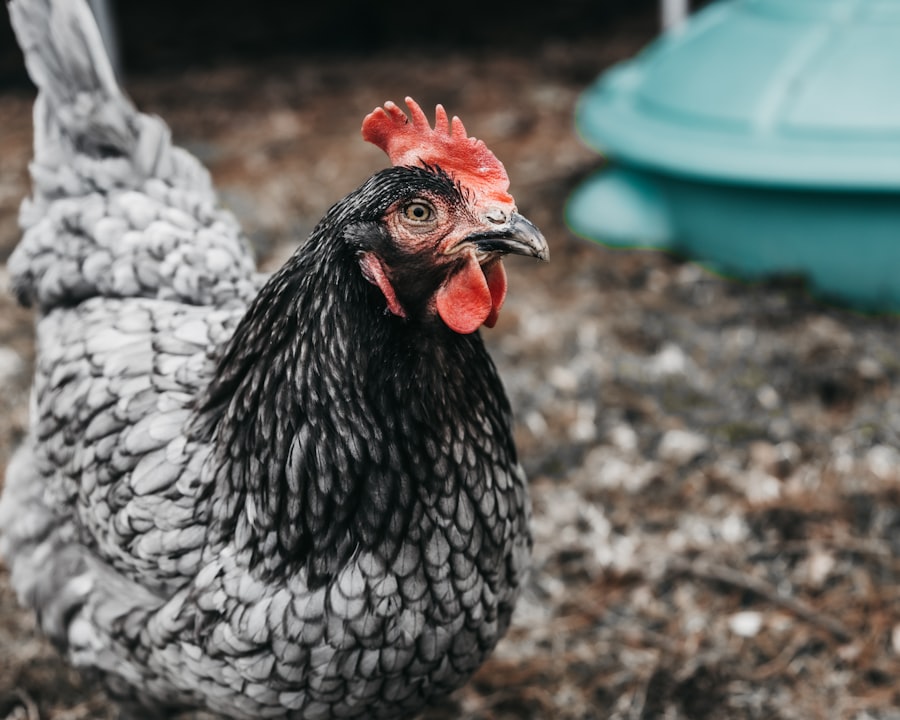
Creating a Suitable Environment
To maximize egg production, it’s essential to provide a comfortable and clean environment that meets the needs of laying hens. This includes providing a private nesting area with clean bedding material where hens can lay their eggs in peace.
Nutrition for Strong Eggshells
A balanced diet with adequate levels of calcium is crucial for strong eggshells and overall egg quality. Layer feed is formulated with higher levels of calcium to support egg production, but supplemental calcium sources such as crushed oyster shells can also be provided free-choice.
Regular Egg Collection and Storage
Collecting eggs regularly is vital to prevent them from being damaged or soiled by other hens. Eggs should be collected at least once or twice a day to ensure freshness and cleanliness. Proper storage of eggs is also important to maintain their quality. Eggs should be stored in a cool place away from direct sunlight and washed before consumption if they are soiled.
By providing a suitable environment, proper nutrition, and regular egg collection, you can maximize egg production from your flock while ensuring high-quality eggs for consumption.
Tips for Keeping Chickens Happy and Healthy
Keeping chickens happy and healthy involves more than just providing food and shelter. It’s important to consider their mental well-being as well by providing enrichment activities that allow them to engage in natural behaviors such as scratching, dust bathing, and pecking. Additionally, social interaction is important for chickens’ well-being.
They are social animals that thrive in the company of other chickens, so it’s important to provide them with companionship by keeping them in small flocks rather than solitary confinement. Furthermore, providing a safe and secure environment is crucial for reducing stress and promoting overall well-being. This includes protection from predators, adequate space for exercise, and a clean living environment.
Regularly spending time with your chickens can also help build trust and strengthen your bond with them. By interacting with them regularly, you can observe their behavior closely and detect any signs of illness or distress early on. Overall, keeping chickens happy and healthy involves providing a balanced diet, proper housing, veterinary care when needed, enrichment activities, social interaction, and a safe environment where they can thrive.
By prioritizing their well-being, you can enjoy the many benefits that come with raising backyard chickens while ensuring that they lead happy and fulfilling lives.
If you’re interested in learning more about keeping chickens, you might also want to check out this article on keeping guinea fowl and whether they can live with chickens. It’s a great resource for anyone looking to expand their knowledge of poultry care. And for more information on poultry in general, be sure to visit PoultryWizard.com. They have a wealth of information on breeding geese, including tips on how to care for goslings.
FAQs
What are the benefits of keeping chickens?
– Chickens provide a sustainable source of fresh eggs.
– They can help control pests in the garden by eating insects and bugs.
– Chicken manure can be used as fertilizer for gardens and crops.
What do chickens need in their living environment?
– Chickens need a secure coop or housing to protect them from predators.
– They require access to fresh water and a balanced diet of chicken feed.
– Chickens need space to roam and scratch, as well as access to sunlight.
What are some common health issues in chickens?
– Common health issues in chickens include respiratory infections, mites, and internal parasites.
– Chickens can also suffer from egg binding, which is when an egg gets stuck in the reproductive tract.
– Proper hygiene, nutrition, and regular health checks can help prevent these issues.
How can I protect my chickens from predators?
– Use secure fencing and wire mesh to keep out predators like foxes, raccoons, and birds of prey.
– Lock up the coop at night to prevent nocturnal predators from getting in.
– Consider using guard animals like dogs or llamas to protect the flock.
What are some common breeds of chickens for beginners?
– Some common beginner-friendly chicken breeds include Rhode Island Reds, Plymouth Rocks, and Orpingtons.
– These breeds are known for their docile nature, good egg production, and hardiness.
– It’s important to choose a breed that suits your climate and purpose (eggs, meat, or dual-purpose).
Meet Walter, the feathered-friend fanatic of Florida! Nestled in the sunshine state, Walter struts through life with his feathered companions, clucking his way to happiness. With a coop that’s fancier than a five-star hotel, he’s the Don Juan of the chicken world. When he’s not teaching his hens to do the cha-cha, you’ll find him in a heated debate with his prized rooster, Sir Clucks-a-Lot. Walter’s poultry passion is no yolk; he’s the sunny-side-up guy you never knew you needed in your flock of friends!

